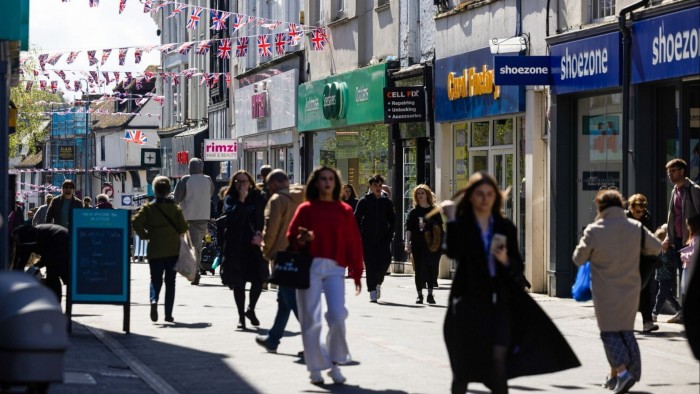Unlock the White House Watch newsletter for free
Your guide to what Trump’s second term means for Washington, business and the world
British retail sales unexpectedly rose 0.4 per cent in March, before Donald Trump announced sweeping tariffs on US trading partners, with sunny weather helping sales in clothing and outdoor shops.
Friday’s monthly data from the Office for National Statistics showed that the volume of goods bought exceeded expectations of economists polled by Reuters, who had predicted a 0.4 per cent contraction.
Clothing and outdoor retailers reported that good weather boosted sales, though the increases were in part offset by falls in supermarket sales.
The figure followed a 0.7 per cent increase in February and a 1.4 per cent rise in January.
However, the latest retail sales data does not take in the impact from Trump’s tariff shock in April and the rise in business and household costs taking effect this month.
Separate figures published on Friday by research company GfK showed that consumer confidence fell four points to minus 23 this month, the lowest level for well over a year.
Earlier in the week, the S&P Global PMI indices showed that US tariffs and rising costs had also hit business morale.
“Retail sales were ticking along just fine before President Trump’s tariffs hit consumers’ confidence,” said Rob Wood, economist at the consultancy Pantheon Macroeconomics.
Alex Kerr, economist at the consultancy Capital Economics, said the retail sales figure would add 0.1 per cent points to GDP in the first three months of the year.
“But while today’s retail sales data confirmed that households spent a bit more freely than expected in Q1, that may not last,” he added. “The drop in consumer confidence in April after the US tariff chaos suggests that households may start to spend more cautiously in the coming months.”
The UK economy performed better than expected at the start of the year, with a 0.5 per cent rise in GDP in February pointing to faster growth across the first quarter than the 0.25 per cent forecast by the Bank of England.
The Met Office reported that the UK had its third-sunniest March on record, helping sales.
Sales in non-food stores, including department stores, clothing and household stores, rose by 1.7 per cent over the month, pushing them to the highest level since March 2022.
In the three months to March, a less volatile measure of spending, sales were up 1.6 per cent compared with the previous three months, the fastest pace since mid-2021.
However the data relates to the period before the US president announced steep “reciprocal” tariffs on dozens of America’s trading partners in early April, and a 10 per cent duty on the UK, in a move that convulsed global markets.
The costs of many utilities for UK consumers also rose in April, with road and stamp duty taxes also rising.
“We had been upbeat about UK consumer prospects before the US lurch to tariffs,” said Wood. “Now the question is how much rising uncertainty will hit consumers.”
Source link









